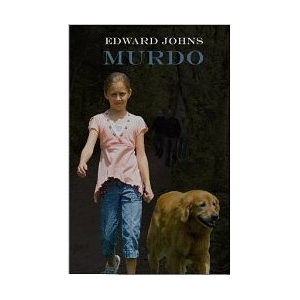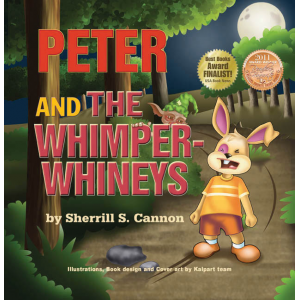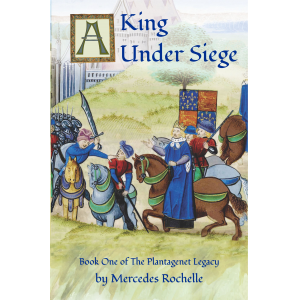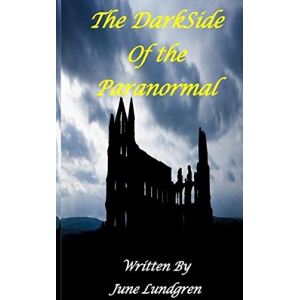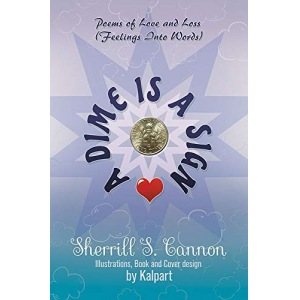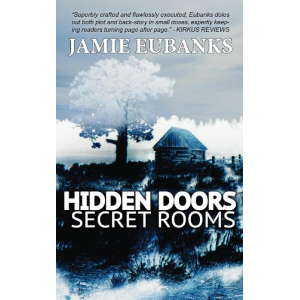Review - The Compulsive Reader
🔗 http://www.compulsivereader.com/html/modules.php?name=News&file=article&sid=2219- Author
- Book
- Story behind the book
- Media Links
- Reviews

Danny Gillan
About
As a youth, my main ambition was to find success as a musician. I’ve been playing the guitar since I was six, and, in my teens and twenties, played in and wrote songs for a number of bands in and around Glasgow, with varying degrees of failure.
As I grew older, and every inch lost to my hairline resulted in two being added to my waistline, I came to realise that rock godhood was no longer a viable option, but it has always stuck with me how much I enjoyed the writing process.
At the same time as seeking out failure and misery in the music world I have had a couple of other careers. Upon dropping out of university for a record third time (my mother is so proud), I got my first pub job. For five or six years I spent pretty much all of my waking hours pulling, and drinking, pints in several of Glasgow’s finest licensed premises. Pub work can be a great life, as long as you don’t mind the terrible wages and complete lack of career prospects, but eventually I found myself inexplicably hankering after something a bit more fulfilling.
Through a casual acquaintance I was introduced to the world of social care, more specifically that of supporting adults with learning disabilities and/or mental health problems. I spent the next eight years working in this field, starting as a voluntary music tutor and rising to the dizzying heights of senior management with a large voluntary organisation operating in the West of Scotland. Eventually, however,
constant battles with social workers about funding, and support staff about the importance of turning up for a shift, started to get to me.
Eight years ago I handed in my notice and went back to pulling pints, at least initially. I’d managed, through blatant nepotism (my sister was the manager), to get a job in a posh Glasgow hotel. For the first year or so I happily reacquainted myself with Glasgow’s drinking culture, but it didn’t take them long to notice I was relatively good with unimportant things like words and numbers, and I found myself charged with thankless tasks such as accounts, payrolls and answering complaint letters. This was not fun, believe me.
I soon tired of all that and, in 2006, returned to social care. Nepotism played its part once again, when a former manager called me with a job offer. The hours are awful and the money’s rubbish, but apart from that I’m quite enjoying it.
Anyway, back to writing. I had a couple of false starts. I wrote some brilliant opening chapters, establishing characters, locations and relationships. The problem was that I could never get past that first chapter. It soon became apparent that plot, of all things, was something of a prerequisite.
This threw me for a while.
And then I had an idea. What would happen if a failed musician (okay yes, me) became depressed (don’t ask) and killed himself, then got famous? That could be a plot.
From that initial idea I sketched out a plot revolving around the friends and family of the musician in question, and found I was able to explore a diverse set of themes including social care, music, familial relationships, friendship and mental health issues, hopefully with a decent dose of humour and sensitivity.
Will You Love Me Tomorrow is the end result of many subsequent months of toil and frustration, and was selected as the Scottish Region winner of the Undiscovered Authors 2007 competition. The book was published by Discovered Authors in October 2008.
Since completing the book I have written a number of short stories, something I hadn’t attempted before. I’ve found this an excellent way to practice and polish my writing, as well as an opportunity to experiment with style, tense, point of view etc. One of my short stories is due for publication in a future edition of Chapman magazine and another has recently been accepted by Bridge House Publishing. Another appears in an anthology produced by the Arts Council funded writers’ site YouWriteOn.com, and a fourth is due to appear later this year in Short Fuses, and anthology produced and published by the Bookshed, an online writing and publishing community.
I have now completed my second novel, Scratch. It tells the tale of Jim Cooper, a Glaswegian thirty-something office worker who decides to leave his job, sell his flat, pay off his debts and start his adult life again from scratch.
Maybe this time he can do it properly and get (or, rather, keep) the girl.
The fact that the girl is happily married and lives in another country, and her Bruce Lee obsessed father seems to want to be Jim’s new best friend are only the beginning of his troubles.
Scratch is an un-sanitised, emotionally honest and hilariously candid story about what it is to grow up as opposed to simply change age, as told by a man who doesn’t know what any of those words mean.
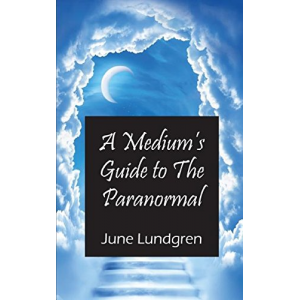
A Mediums Guide to the Paranormal
Description
<p>Do angels, ghosts and demons really exist, or are they a figment of our over active imagination? Can ghosts, demons and spirits harm you? If you don't believe in them they can't bother you right? How can you protect yourself against the paranormal? Do we live once and it's all over or do we come back time and again to live new lives? In this book, you will gain information about the paranormal from a psychic-mediums perspective. As a psychic medium I have gathered a lot of information about the other side. The book covers over more than 40 years of paranormal related information interspersed with my own personal paranormal encounters. Anyone who is interested in the paranormal including ghosts, demons, orbs and hauntings will enjoy the many topics covered in this book. Those interested in spiritualism, new age topics and metaphysics will find many of the chapters such as past lives, possession and death and the soul connection. People who are experiencing their own paranormal occurrences such as hauntings and spirit attachments will find help and information to help them. People of all ages, walks of life and many religions will find something of interest in the book. Even those who do not believe in the paranormal will enjoy many of the thought provoking topics covered in this book.</p>
Story Behind The Book
Media Links
Reviews
<p style="margin-bottom:12pt;"><strong><span style="font-family:Arial;color:#000000;font-size:11pt;">Review by Magdalena Ball, The Compulsive Reader, June 2009</span></strong><span style="font-family:Arial;color:#000000;font-size:11pt;"><br /><br />Will You Love Me Tomorrow <br />by Danny Gillan <br />Discovered Authors<br />ISBN-13: 978-1905108633, Dec 2008, Paperback<br /><br />How could you not love a book that opens in the midst of a first person narrated suicide and still manages to be funny? Bryan Rivers is a musician who is in the late stage of a suicide when we join him. It’s a hard opening to manage, but Gillan does it with ease, setting the black edged humour of the book perfectly. Though it would have been easy to turn the tortured, depressed musician into a cliché, the reader instead is treated to </span><span style="font-family:Arial;color:#000000;font-size:11pt;">Bryan</span><span style="font-family:Arial;color:#000000;font-size:11pt;">’s fumbling attempts to find a pen and piece of paper to write his wife, Claire, a farewell note. By this point in the story, </span><span style="font-family:Arial;color:#000000;font-size:11pt;">Bryan</span><span style="font-family:Arial;color:#000000;font-size:11pt;"> is in the midst of overdose induced stomach cramps, and it isn’t an easy matter. But he wants to apologise to Claire. As he mentally recounts how he got to this point, it’s almost possible to follow him. In other words, though his almost accidental slide into suicide is a tragic waste, the reader immediately begins to like him and mourn his passing along with his wife Claire.<br /><br />When, three days after his suicide, record producer Jason Clements offers him the contract he’s waited his whole life for, it’s beyond ironic. But despite </span><span style="font-family:Arial;color:#000000;font-size:11pt;">Bryan</span><span style="font-family:Arial;color:#000000;font-size:11pt;">’s death, life, and good music, go on. Danny Gillan’s Will You Love Me Tomorrow is about as black as humour gets, and yet it never becomes farcical or loses the poignant edge. Certainly there is humour and a cast of characters that are real enough to remind you of your favourite boss or in-law. </span><span style="font-family:Arial;color:#000000;font-size:11pt;">Bryan</span><span style="font-family:Arial;color:#000000;font-size:11pt;">’s overly pragmatic and usually angry brother Thomas plays a strong part, as does the greedy Fortuna executive Phillip Doland, who is the one caricature in this novel. Claire, Adam, Bryan’s best friend, and Jason are all quirky and deep enough – grappling as they are between guilt and self-actualisation – to believe in and provide a good balance to Doland’s antics. <br /><br />The humour is sometimes strong enough to get you laughing outloud – from Adam’s crazy haircuts, Jason’s goofy attempts at impressing Claire,or even in the midst of </span><span style="font-family:Arial;color:#000000;font-size:11pt;">Bryan</span><span style="font-family:Arial;color:#000000;font-size:11pt;">'s suicide:</span></p> <p></p> <p style="margin:0cm 0cm 0pt;" class="MsoNormal"><em><span style="font-family:Arial;color:#000000;font-size:11pt;">He couldn't believe it. Please let it be a piss-take, please. But it wasn't. He managed to keep listening as the rest of the travesty played out.<br />His favourite song by his all-time favourite band had been raped! Desecrated! Mollocated! Violated! Buggered up! Ruined! No, not ruined obviously, there was still the original, but he knew he would never be able to listen to </span></em><em><span style="font-family:Arial;color:#000000;font-size:11pt;">London</span></em><em><span style="font-family:Arial;color:#000000;font-size:11pt;"> Calling again without this tragic mockery springing immediately to mind</span></em><span style="font-family:Arial;color:#000000;font-size:11pt;">. </span></p> <p></p> <p><span style="font-family:Arial;color:#000000;font-size:11pt;"><br /><br />But underneath the humour, there is transformation. Claire, Adam, and Jason all grow throughout the course of the novel, and </span><span style="font-family:Arial;color:#000000;font-size:11pt;">Bryan</span><span style="font-family:Arial;color:#000000;font-size:11pt;">'s very believable depression is handled with sensitivity, providing a thoughtful foil to the light heartedness of the interactions. The balance between the shallow and financially driven world of the recording industry, and the serious emotional toll of this loss on </span><span style="font-family:Arial;color:#000000;font-size:11pt;">Bryan</span><span style="font-family:Arial;color:#000000;font-size:11pt;">'s family is handled deftly, never giving in to sentimentality.<br /><br />Each chapter begins with a quotation from one of </span><span style="font-family:Arial;color:#000000;font-size:11pt;">Bryan</span><span style="font-family:Arial;color:#000000;font-size:11pt;">’s songs, and although the poetry itself isn’t strong, it does help to keep </span><span style="font-family:Arial;color:#000000;font-size:11pt;">Bryan</span><span style="font-family:Arial;color:#000000;font-size:11pt;"> at the centre of the reader’s focus. Though the book is never sad as such, the reader's privy perspective from the novel’s start creates a poignancy that underlies the zany. <em>Will You Love Me Tomorrow </em>is an easy, fast paced read, full of funny twists and pithy insights. There’s a musical spring to Gillan’s style that belies the seriousness of his topics, covering a broad range of topics including the impact of depression and death on friendship, love, how we move on past tragedy, the music industry, art versus public relations, and family jealousy. <br /><br /><br /><br /><strong>About the reviewer: </strong></span><span style="font-family:Arial;color:#000000;font-size:11pt;">Magdalena</span><span style="font-family:Arial;color:#000000;font-size:11pt;"> Ball runs <a href="http://www.compulsivereader.com/html"><span class="Hyperlink1"><font color="#000000">The Compulsive Reader.</font></span></a> She is the author of <a href="http://www.amazon.com/Sleep-Before-Evening-Magdalena-Ball/dp/1904492967/ref=pd_bbs_sr_1/105-9326603-7885261?ie=UTF8&s=books&qid=1185672347&sr=8-1"><span class="Hyperlink1"><font color="#000000">Sleep Before Evening</font></span></a>, <a href="http://www.compulsivereader.com/html/images/assessmentorderform.html"><span class="Hyperlink1"><font color="#000000">The Art of Assessment</font></span></a>, <a href="http://www.compulsivereader.com/html/images/quarkindex.htm"><span class="Hyperlink1"><font color="#000000">Quark Soup</font></span></a>, and, in collaboration with Carolyn Howard-Johnson, <a href="http://www.compulsivereader.com/html/images/cherishedpulse.htm"><span class="Hyperlink1"><font color="#000000">Cherished Pulse </font></span></a>and <a href="http://www.compulsivereader.com/html/images/she_wore_emerald_then.htm"><span class="Hyperlink1"><font color="#000000">She Wore Emerald Then. </font></span></a>She runs a monthly radio program podcast <a href="http://www.blogtalkradio.com/compulsivereader"><span class="Hyperlink1"><font color="#000000">The Compulsive Reader Talks</font></span></a>.<br /><br /></span></p> <p></p> <p><span style="font-family:Arial;color:#000000;font-size:11pt;"><br /><br /></span><strong><span style="font-family:Arial;font-size:11pt;" lang="en" xml:lang="en">Review by Shari Low, The Daily Record, 22<sup>nd</sup> Novenber, 2008</span></strong></p> <p></p> <p><span style="font-family:Arial;font-size:11pt;" lang="en" xml:lang="en">WILL YOU LOVE ME TOMORROW by Danny Gillan</span></p> <p></p> <p><span style="font-family:Arial;font-size:11pt;" lang="en" xml:lang="en">Jason Clements, A&R man for record company Fortuna UK, is about to make that call that every artist dreams of receiving - he's going to give musician Bryan Rivers his big break. </span></p> <p></p> <p><span style="font-family:Arial;font-size:11pt;" lang="en" xml:lang="en">One phone conversation later and his stellar plans hit a slight hitch - Rivers died three days earlier. Undeterred, he persuades Bryan's wife and family that when it comes to music, success and fame, a marketing campaign is more important than a pulse. </span></p> <p></p> <p><strong><span style="font-family:Arial;font-size:11pt;" lang="en" xml:lang="en">Switch off that iPod and pick this up because if there was a chart for the best debut novelists of 2008, Gillan would be right up there. </span></strong></p> <p></p> <p style="margin:0cm 0cm 0pt;" class="MsoNormal"></p> <p><span style="font-family:'Times New Roman';"></span> </p>
